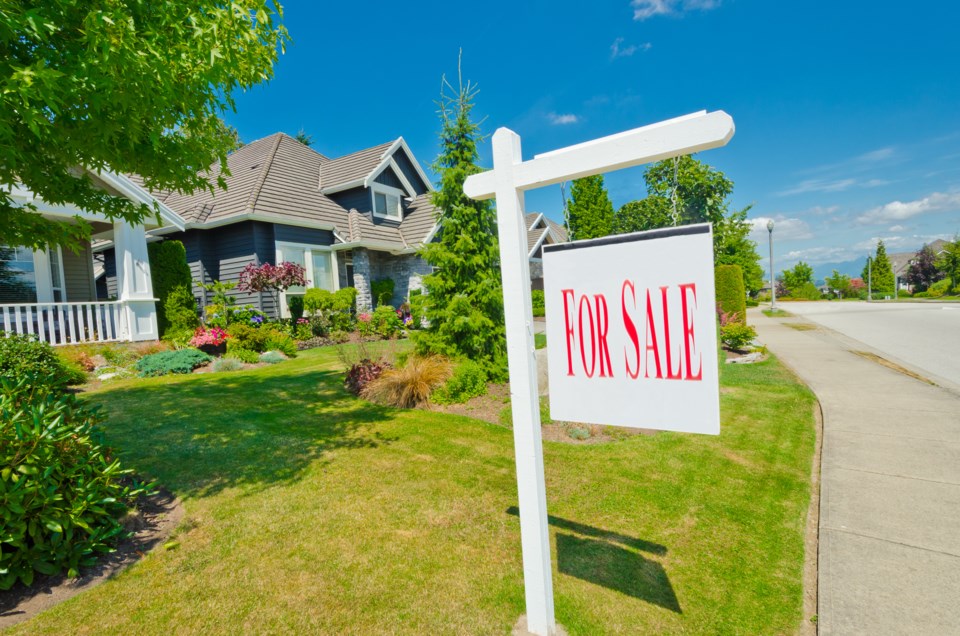You don’t need new BC budget figures to tell you how screwed up the province’s real estate sector is, but in case you were wondering anyways there was another stunning new statistic revealed this week within the province’s latest financial update.
BC has brought in more revenue so far this year from the property transfer tax ($1.8 billion) than actual property taxes ($1.5 billion).
Think about the implications of that - the province now makes more money from taking a slice of real estate transactions than it does from actual homeowners paying taxes on the properties they own.
Or put another way, the surcharges on all the expensive homes being bought and sold in BC is worth more than the core levy people pay on homes to fund services like health care and education.
It’s the first time in 14 years covering BC politics I’ve seen such a distortion, though you could see it coming for a couple of years now as the province’s real estate sector continues to skyrocket to new heights.
“What we know is that we had a very active year in housing sales, that the pandemic really pushed housing sales up in a way no one had anticipated,” Robinson said, when I asked her about what this revenue shift signifies for the BC government. “And that’s created additional challenges certainly for consumers.”
She said work is being done on supply, as well as pushing local government approval processes.
“We have seen over the last number of months that start to moderate,” said Robinson. “This is still a concern for our government, housing affordability is still top of mind for most British Columbians and we’re going to continue to work to address that particular challenge for sure.”
It’s a bit of a stretch to describe a BC housing market where prices rose more than 20 per cent year over year as starting to “moderate.”
BC hopes that its plans to set “cooling off periods” on each sale next year, as well as legislation to allow councils to skip rezoning hearings for housing projects in areas where increased density is already approved under the official community plan, might help at least slow the explosive growth.
The jury is still out on that.
But what we can say for sure is after almost five years in power, the current BC NDP government appears every bit as addicted to the easy cash from the real estate sector as the previous BC Liberal government.
It’s a staggering source of immense wealth for the provincial treasury, up 40 per cent since the government changed in 2017, and only growing as sales prices increase as well.
At $3 billion, the property transfer tax this year is expected to be more valuable than the carbon tax and fuel tax combined. It also outstrips the employer health tax, is twice as large as all forestry revenue, three times as large as lottery revenue and four times the profits generated on electricity by BC Hydro.
In the big picture, it’s not that far behind the $4.9 billion corporate revenue tax stream - a statement that would have been unthinkable to write just a few years ago.
This wouldn’t be a big deal if the province was flush with cash from diverse revenue streams.
But instead, BC is leaning heavily on a small number of taxes to pull itself out of the red ink caused by the COVID-19 pandemic.
Robinson’s second quarter update revealed the projected deficit this year is now forecast to be only $1.7 billion, a huge decline from the $9.7 billion in April’s budget. A major economic driver? You guessed it, the property transfer tax from the skyrocketing real estate sector, alongside better-than-expected personal and corporate income taxes, and higher sales taxes from increased consumer spending.
All of those sources were listed as positives at the top of Robinson’s media briefing on BC’s economic situation.
And then she listed them again, later on, in the part where she described the uncontrollable risks to BC’s forecast.
Turns out, the personal and corporate income tax adjustments made during COVID-19 are largely one-off windfalls, she said. There’s no guarantee consumer spending will hold. And the real estate could slow at any moment (though, it’s been growing unconstrained for half a decade now and survived even the COVID-19 restrictions).
BC’s reliance on revenue sources it can’t control is doubly daunting when you consider the economic update didn’t include any of the impacts of the recent flooding.
It will cost billions of dollars to provide aid to the 17,000 people evacuated by the disaster, as well as rebuild the town of Merritt and numerous destroyed sections of highway across the province. That’s not even counting the amount needed to prevent the Fraser Valley dairy and poultry sector from collapsing due to the widespread damage to fields and livestock.
Robinson could not say what the economic impact of the flood will be or how BC will pay for it.
In reality, we all know there’s only one way. BC better hope the real estate bubble never bursts, or the impact to its finances will be a financial disaster.
Rob Shaw has spent more than 13 years covering BC politics, now reporting for CHEK News and writing for The Orca. He is the co-author of the national best-selling book A Matter of Confidence, and a regular guest on CBC Radio.



